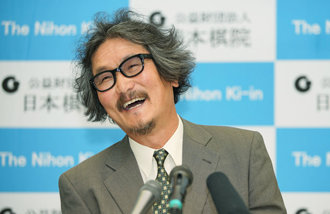Eight-month ministers
When the U.S. Federal Aviation Administration downgraded Koreas aviation safety by one notch to Grade 2 in August 2001, international confidence in Korea crashed. The U.S. took two years to lower the grade after raising safety fears, but the Korean government failed to act properly largely because five senior officials of the Construction and Transportation Ministry, including its minister and bureau directors, were replaced over that period. Former Construction and Transportation Minister Choi Jong-chan said, In the first year after taking office as minister, you execute the budget as planned by your predecessor. The policy ideas you develop in the first year can be implemented in the third year. If you get dismissed within a year after being sworn in, you end up doing nothing more than executing your predecessors budget.
In Korea, ministers serve for just about 18 months on average. In the U.S., which has the same presidency system as Korea, many presidential secretaries serve as long as their presidents do. The average length of a ministers term was the shortest under the Kim Dae-jung administration at 10.6 months, followed by the Kim Yong-sam administration at 11.6 months and the Roh Moo-hyun administration at 14 months. The figure under Chun Doo-hwan was 18.3 months and that under Roh Tae-woo 13.7 months. The average time served by an education minister, who plans the nations long-term education policies, was just 14 months.
Incumbent President Lee Myung-baks chief of staff Yim Tae-hee announced that lawmakers-turned-ministers will be replaced before the regular National Assembly session opens next month. Considering the time needed for parliamentary confirmation hearings for new appointees, Special Affairs Minister Lee Jae-oh and Health and Welfare Minister Chin Soo-hee would have served for just more than one year, and Culture, Sports and Tourism Minister Choung Byoung-gug for just eight months. In a Jan. 19 editorial two days after Choungs confirmation hearing, the Dong-A Ilbo warned that if he runs in the 2012 general elections, he cannot perform his job properly because of his consideration of the elections. Choung was expected to serve for a mere 10 months because he refused to pledge not to run in the elections. Considering the presidents plan to replace lawmakers-turned ministers, Choung`s term in office will likely be even two months shorter than that.
In his confirmation hearing, Choung flattered Park Jie-won, then floor leader of the main opposition Democratic Party, by praising him as the most impressive former culture minister. Choung now faces criticism that the portfolio he obtained in return for humiliatingly performing a deep bow to Park was only meant to boost his prospects for next years elections. Appointing politicians as ministers with the intent to raising their careers is a practice that should be rid of.
Editorial Writer Kwon Sun-taek (maypole@donga.com)







